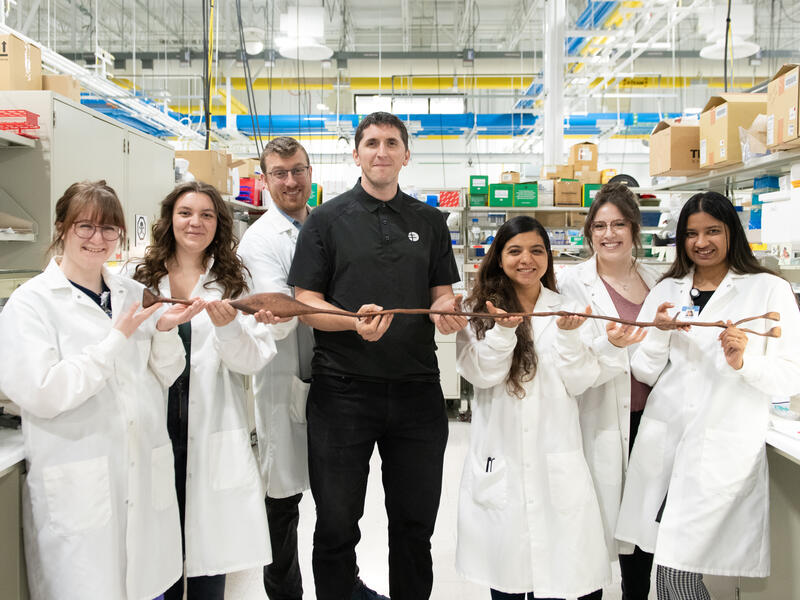Louis Jan (LJ) Pilaz and his lab of researchers at Sanford Research recently received a $2 million grant from the National Institutes of Health.
The focus of the five-year grant is to investigate and understand the cellular and molecular mechanisms regulating the production of neurons in the context of brain development during an individual’s prenatal period.
Dr. Pilaz and his lab will utilize the grant to specifically perform research on a gene mutation that causes a rare disease known as macrocephaly. Missense mutations or deletion of the gene, known as ZBTB7A, lead to macrocephaly (larger brain) and developmental and neurological disabilities but the mechanisms underlying these phenotypes are completely unknown.
“Macrocephaly affects about 1 in 3,000 infants and has symptoms that are similar to autism,” said Dr. Pilaz. “During prenatal development there may be an overgeneration of neurons by neural-stem cells. When this specific gene (ZBTB7A) is mutated, it may lead to the generation of too many neurons. We need to determine the function of this gene during the prenatal period to better identify how this disease arises inside the brain during brain development.”
Dr. Pilaz received his PhD in Lyon, France, and then moved to the United States where he trained as a postdoctoral fellow at John Hopkins University School of Medicine and Duke University. His lab consists of seven scientists, including himself.
For more information about Sanford Research, visit research.sanfordhealth.org.
Learn more
- Brain researcher LJ Pilaz is ‘like a discovery junkie’
- Sanford receives $2M grant to study brain abnormalities
- Research into rare brain disease gets a boost
…
Posted In Brain & Spine, Company News, News, Research
